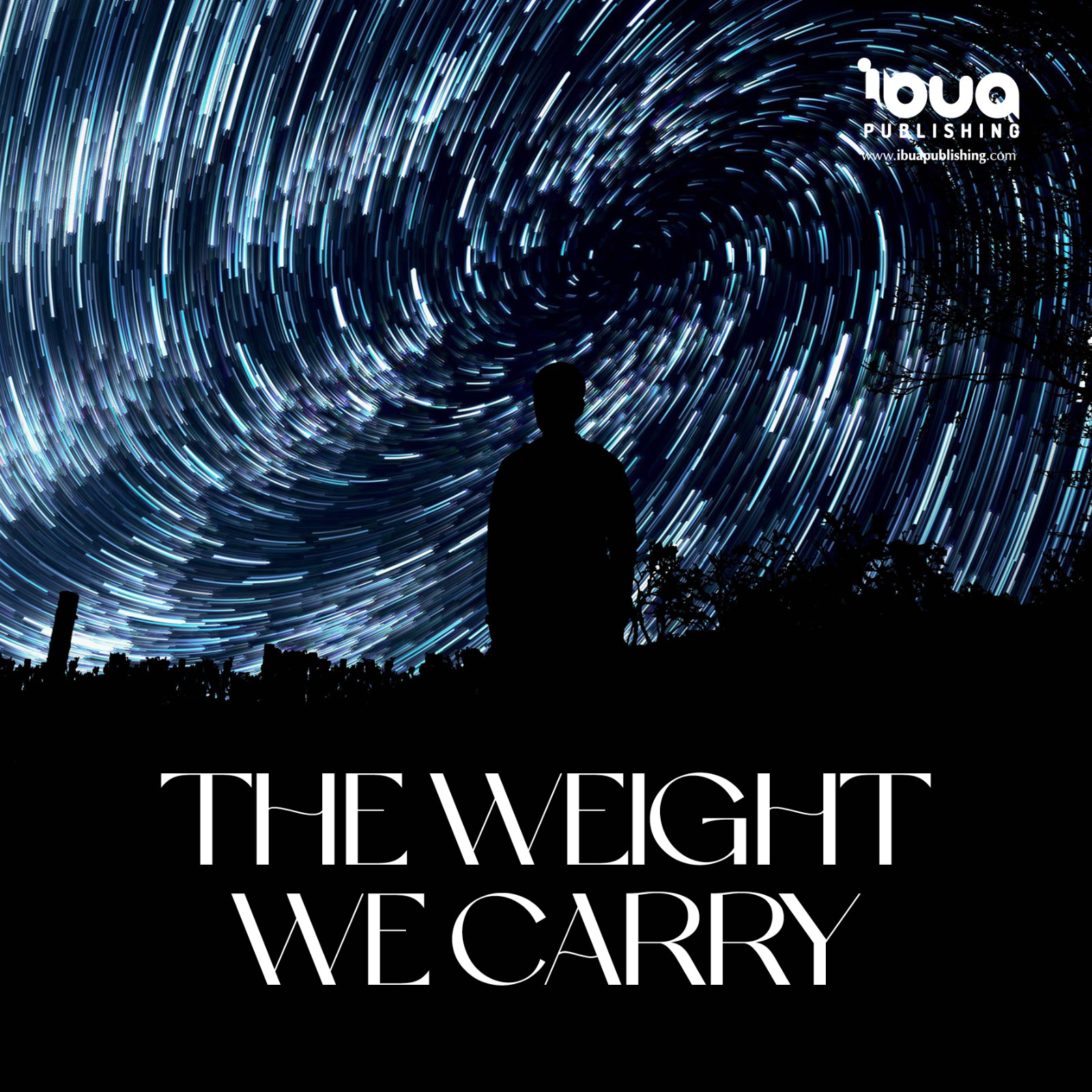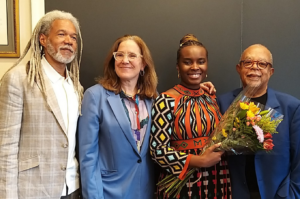
Ugandan literary magazine Ibua Journal has a new issue out this March. Titled The Weight We Carry, the issue explores the many burdens felt by the African continent today in the aftermath of a global pandemic. Some of these larger concerns include increased unemployment rates, AI advancements, high costs of living, political unrest and tyranny, fears of a looming recession and a climate crisis.
Founded in 2018, Ibua Publishing is a digital platform established for the purpose of showcasing literature from African writers and making these stories digital accessible. In addition to running Ibua Journal, they publish poetry collections, novels, children’s books, and other works.
Read the editorial note for the new issue below:
In the last couple of years, it would seem that we have collectively taken on more than was imaginable leaving our mental, emotional, and physical states frazzled and strained. Can our centres keep holding as we deal with the aftermath of a global pandemic, carry anxieties over increased unemployment rates and new fears of the loss of some jobs with Al advancements like ChatGPT, high costs of living, political unrest and tyranny, fears of a looming recession and a Climate crisis? It all feels much. How much longer can we hold out? How can we access the support we need to heal and thrive? What does this support look like? How do we build structures to safeguard human life in the individual, national and global spheres in the face of this? These concerns and more felt particularly poignant as we curated this issue, The Weight We Carry. The stories and poems herein speak to the complexity of human existence and affirm that at the core, we want to make the best of what our life paths hold and reveal, to live our best life. But like balloons weighted down, we find ourselves stuck to the ground held there by elements, internal and external to us. We watch the skies nonetheless, straining to catch the wind as it blows our way, yearning to soar, free from these weights. Some unique to us and others shared by the collective. Pulled in many directions, how we react to the growing pressures might vary but the desire to overcome, survive, and thrive remains consistent.
The Weight We Carry sounds like it includes an exciting set of topics and themes, and we cannot wait to dive deep into the stories included in the new issue.
Some of these stories and their central ideas are:
- Fidel by José Sá speaks of new love and the strain this inflicts on pre-existing relationships. And of how blinded by our new sunny state and desperate to keep its shine, we become negligent of what was once important. Sometimes making room for the new has a drastic impact on the old.
- In Stick and Dog-with-no-name, Marisa Kelly explores the life of a young man from Zimbabwe living in Botswana. The promise of new beginnings and opportunities fast fading unlike the pressure to provide for the family left behind.
- In Our Affair, Thabi Moeketsi introduces us to a family trying to survive the Zimbabwe economic crisis. In the midst of this, family relationships are strained and there’s no patience for the wayward.
- In Eucalyptus by Simpson Muhwezi we meet Chemutai, a teenage girl contemplating her initiation into womanhood and her convoluted emotions following this experience, and her ambivalence toward her family.
- In Estranged, Christine Akinyi draws attention to the lives of people living with HIV/AIDS. How does one build intimate relationships once they test positive?
- The Portrait of Fatimah Hassan by Musa Hashim imagines how to capture the essence of one’s object of desire. As Fatimah, the protagonist, seeks to resolve her love, will the portrait in her hands give up its clues?
- And in Chukwuebuka Emmanuel’s Time and Love, love transcends time as what was becomes what is and glimpses of the past unfolding anew reveal themselves.
- In Franz Owano’s Ground to Dust, the political unrest in Kenya in 2007 front and centre. That this unrest would wreak havoc on many communities is not surprising. History books are awash with the occurrence of this in different conflicts. How do African nations have peaceful transfers of power?
- In That Sunday by Thabo Pitja, a young man Kitso together with the congregation he leads, is faced with a life-altering secret. How long can it remain hidden?
- Closing out our short story section is Mbinguni, The New Africa by Malebo Mokoto. It has been documented that those in the global south are facing the effects of climate change disproportionately. The reality of this story is not that far from where we are headed as a continent.
- The poetry section has poems covering a range of themes including tiredness and exhaustion with having to carry life’s burdens, loneliness, hope, love, pain, and yes, the weights we carry.
Check out the the new issue of Ibua Journal here.









COMMENTS -
Reader Interactions